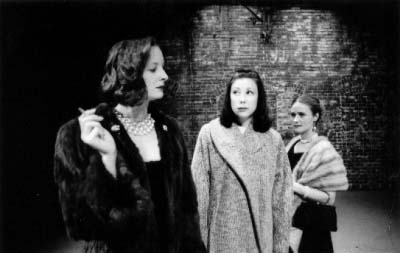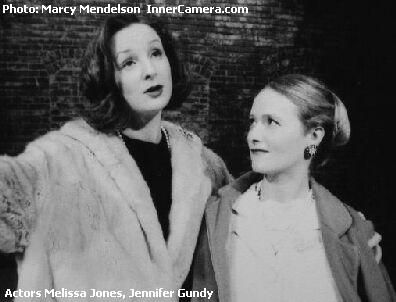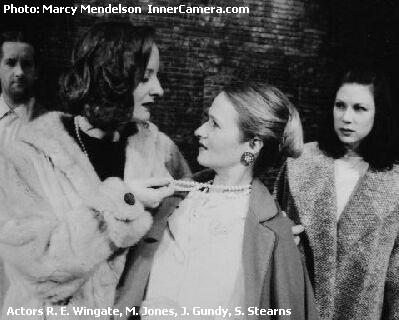 |
| From Contentious Minds |
Franklin FoerThe Libelous TruthJuly 13, 2011
That Hellman and McCarthy would despise one another is not surprising. Each had good reason to view the other as her evil twin. Hellman wrote plays for Broadway; McCarthy reviewed theater for Partisan Review. They were both celebrated memoirists, whose legends stemmed, in some measure, from the frankness with which they discussed their sex lives. Where McCarthy cast her lot with the Trotskyists and remained with them as they morphed into liberal cold warriors (until she broke with them over Vietnam), Hellman was a Stalinist, invited to meet Uncle Joe in Moscow. Their politics reflected their literary sensibilities. McCarthy was a tough-minded realist and unstinting in pointing out the ugly flaws in herself and in her characters. Hellman wrote melodrama, erecting villains and heroes, none of the latter larger than herself, and depicting the moral choices of the world as a series of easy answers to epic questions.

In other words, Hellman’s libel suit against McCarthy came freighted with world-historical issues. Alan Ackerman has reminded us of these stakes in his interesting and somewhat overwrought book. He rightly suggests that McCarthy’s suit against Hellman was the culmination of the irreconcilable arguments about liberalism that were implicit in their collected works and biographies. That is what lifts the story of this squabble out of the realm of gossip and into the realm of ideas.
NEITHER MCCARTHY NOR Hellman was adept at obscuring her true feelings about the libel suit: both of them perversely loved it. McCarthy sent her lawyer long memos filled with the ample evidence of Hellman’s fraudulence that she had uncovered. Even though the legal fees nearly bankrupted her—and they would have done so if not for an emergency infusion of cash from Deborah Pease, the publisher of The Paris Review—she considered confrontation central to her professional bona fides and her mission as an intellectual.
McCarthy’s tendency to fling herself into a quarrel, the more adversaries the better, was already present in her earliest writing. Two years out of Vassar, she invested herself with the authority to pillage the entire publishing establishment. In 1935, she co-wrote a series of essays for The Nation called “Our Critics, Right or Wrong.” Dead wrong, as it turned out. And McCarthy had no problem naming names—The New York columnist J. Donald Adams, the proletariat-chic reviewers of the New Masses, and a long list of other eminences. They were charged with nothing less than the “debasement of taste,” for publishing reviews that failed to judge fiction rigorously. While brushing aside the achievements of modern literature with “oracular certainty,” they reduced criticism “to a quivering jelly of uncritical emotion.” The Times dubbed the series “a St. Valentine’s Day Massacre of reviewers and critics.”

This series disclosed the sensibility that would undergird all of McCarthy’s criticism, fiction, and politics. She abhorred opinions that were withheld, or were reshaped in order to please their audience or to serve some unstated agenda. Her writing was a kind of intellectual’s muckraking, calling out the hypocrites and shaming the overrated. She venerated factuality and precision, stuffing her novels full of detailed descriptions. “The fetishism of fact” is a “splendid sickness,” she exulted.
To her critics, McCarthy’s instinct to expose and denounce seemed cruel. Even her friend Dwight Macdonald, who often defended her against those attacks, anxiously quipped, “When most pretty girls smile at you, you feel terrific. When Mary smiles at you, you look to see if your fly is open.” Indeed, like many of McCarthy’s friends, Macdonald made several veiled appearances in her fiction, although he never registered any complaints with her. To complain would have required admitting that he provided the basis for her characters, and such an admission would be far too crushing a confession of his own blemishes. McCarthy had a gift for compressing acute psychological assessments into a damning detail—for uncovering the most painful and, therefore, most telling character flaw. In the case of Macdonald, she perfectly mimicked his anxieties about his failure to write a Big Book, the way he carried around his notes for a project that everybody knew he would never finish.
When her friends and acquaintances identified themselves in McCarthy’s fiction, a task that usually required little straining, they sometimes found themselves joining Hellman in placing irate calls to their lawyers. Philip Rahv, the remarkable editor of Partisan Review, initiated (and then quickly withdrew) a suit alleging 132 violations of his rights after his thinly veiled appearance as the imperious editor Will Taub in McCarthy’s early novel The Oasis. Almost fifteen years later, the Herald Tribune quoted McCarthy’s Vassar classmates griping about how she had barely disguised them in The Group.
No comments:
Post a Comment